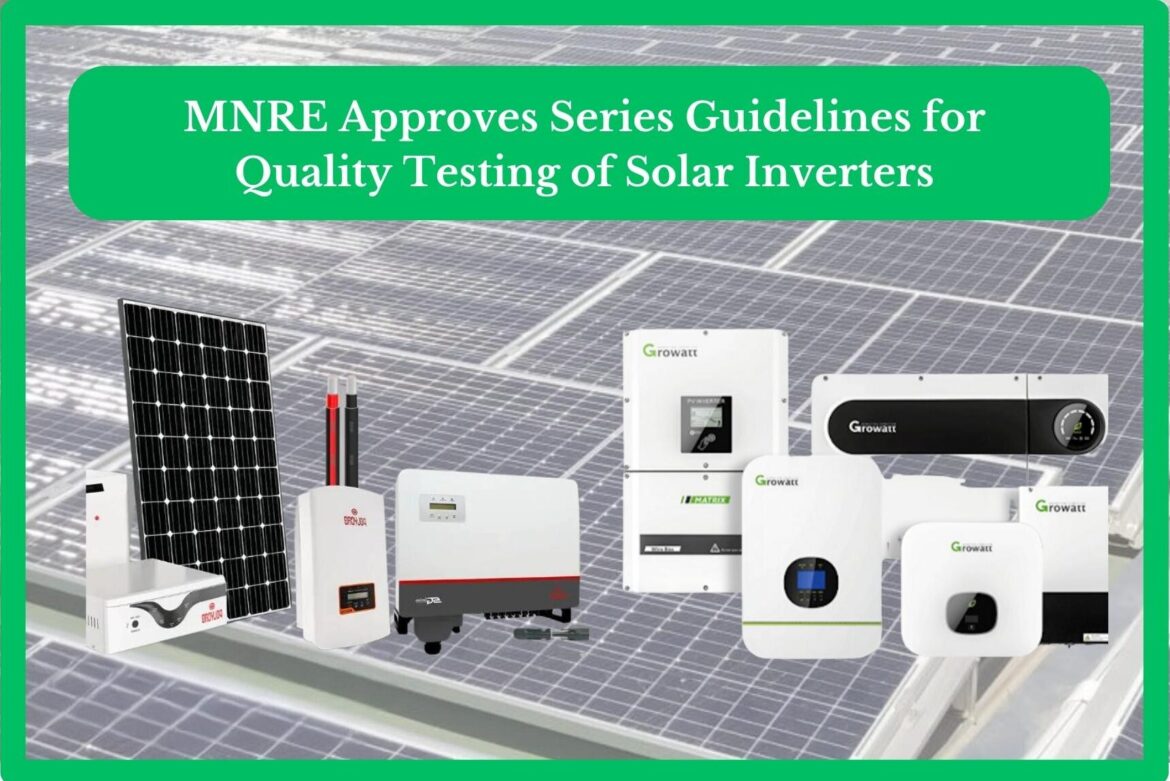The Ministry of New and Renewable Energy (MNRE) has approved the series of guidelines for grouping solar inverters. These series of guidelines pertain to conducting tests in laboratories for the implementation of a quality control order that was introduced in 2017.
The draft guidelines were introduced by the ministry in April 2019. As inverters are of varying sizes, ratings, and types, they need to be grouped into categories for submitting samples to test labs.
The guidelines have been issued to facilitate testing in the formation of a series of products for the approval of a product family.
This would also include any change in the design and material for the testing of solar inverters in test labs for the compulsory registration with the Bureau of Indian Standards (BIS). All models that are included in the family typically have the same hardware and firmware essential to ensure conformity with applicable requirements.
According to the guidelines, “Manufacturers will have to submit a declaration about the series of their product while submitting the samples of a particular series for testing to the test labs. Out of the entire range of models intended to be covered under registration, the highest-rated model will be tested to cover the entire range of the family. The lab will be required to charge the cost of testing only for the highest-rated inverter size model and a test report can be issued to all such sets of lower wattage.”
Further, if there is a change in the construction or components of the family products, then the product will be submitted to the test labs for a fresh round of testing.
The guidelines go on to mention the documentation, process of testing, marking, retesting, and passing criteria. These guidelines apply to SPV-based off-grid, grid-tied, and hybrid inverters of capacities of up to 150 kW.
All brands with model numbers will need to be listed in the test report even though test samples of all brands need not be submitted. Products manufactured in separate locations will have to be tested separately.
In July 2019, Mercom had reported that the deadline for BIS certification of solar inverters was extended to September 2019 while the series guidelines were under approval.
In April 2019, the MNRE issued draft guidelines for series approval (grouping) of solar inverters to conduct testing in labs for the implementation of “Quality Control Order on Solar PV Systems, Devices and Components Goods 2017.”
Previously, Mercom reported about the struggles of inverter manufacturers in gaining clarity on the ambiguous BIS certification process. The unavailability of labs, lack of testing facilities and workforce, unreasonable costs of testing, absence of series guidelines, and confusion regarding MNRE notifications were some of the issues that have made compliance with the order extremely difficult.
The solar energy industry is rapidly evolving, with new advancements and innovations emerging at an unprecedented pace. To stay ahead of the curve and gain valuable insights into the latest trends and developments, be sure to follow Infisol Energy on LinkedIn.
Our LinkedIn page serves as a hub for sharing industry news, informative articles, and thought-provoking discussions. You will gain access to exclusive content, connect with industry experts, and engage with a vibrant community of solar enthusiasts.
By following Infisol Energy on LinkedIn, you’ll ensure that you’re always at the forefront of the solar revolution, empowered to make informed decisions and contribute to a sustainable future.

